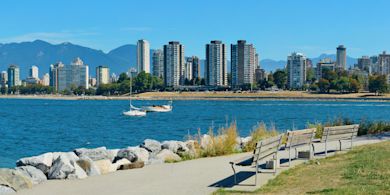- News and articles
- Find usIDP AustraliaIDP BahrainIDP BangladeshIDP CambodiaIDP CanadaIDP ChinaIDP EgyptIDP GhanaIDP Hong KongIDP IndiaIDP IndonesiaIDP IranIDP JordanIDP KenyaIDP KoreaIDP KuwaitIDP LebanonIDP MalaysiaIDP MauritiusIDP Middle EastIDP NepalIDP New ZealandIDP NigeriaIDP OmanIDP PakistanIDP PhilippinesIDP Saudi ArabiaIDP SingaporeIDP Sri LankaIDP Taiwan, ChinaIDP ThailandIDP TurkeyIDP UAEIDP VietnamIDP Corporate
- Social
- English
Topics covered
What is winter like in Canada?
If you’re wondering what to expect when it gets cold, here are answers to some common questions:
When are the winter months in Canada?
Usually, November to March.What’s the coldest month?
January is typically the coldest, with Canadian winter temperatures dipping as low as -35 degrees Celsius.How can I stay warm in the Canadian winter?
Dress for the activity. If you’re active, wear layers that regulate your temperature.
- Avoid cotton. Fabrics like wool wicks sweat so you stay dry and warm.
- Eat well.
A good meal starts up your metabolism and helps keep you warm.
Can I survive a Canadian winter?
Yes! Like any season, Canadian winters come with drawbacks, but with the right knowledge, there’s lots to enjoy during the colder months.
When are the winter months in Canada?
What’s the coldest month?
How can I stay warm in the Canadian winter?
Can I survive a Canadian winter?
13 Essential Canadian Winter Clothing and Gear
A great first winter starts with the right clothing and equipment. Must-haves include:
Thermal base layers
Knit sweater
Wood cabin socks
Snow pants
Knit scarf
Canadian winter coat - Synthetic, down-filled, with a cold rating of at least -20 degrees Celsius, waterproof and windproof.
Boots - Waterproof, insulated, EVA footbed, and a grippy sole for snow and ice.
Gloves or Mittens - The best gloves for a Canadian winter will be texting gloves, wool, or double-layered.
Thermal-insulated travel mug
Toque
Emergency winter kit - Essential if you have a car. Here’s how to make your own.
Weather app
Space heater
13 Fun Canadian Winter Activities
Canadian winters are a unique experience well worth taking advantage of. Here are some ideas of what to do, including outdoor activities to boost your wellness and vitamin D:
Go skiing
Play ice hockey
Skate on a frozen pond
Go dog-sledding
Go tobogganing
Ride a snowmobile
Take a winter hike
Build a snowman
Enjoy tasty Canadian treats like poutine and BeaverTail pastries
See the Northern Lights
Cook something new like a soup or homemade hot chocolate
Cozy up inside and learn a new hobby like knitting or painting
Take an adventure to a new place
What Are the Statutory Holidays in Canada During the Winter?
Statutory holidays are mandatory, paid holidays for employees. They’re a great time to tackle places and activities on your Canadian winter to-do list. Winter national statutory holidays include:
Christmas Day on December 25
Boxing Day on December 26 *
New Year’s Day on January 1st
If a statutory holiday falls on a weekend, workers usually have the following weekday off. Statutory holidays also vary from province to province. Read more about provincial paid holidays here.
We hope this guide has left you excited and ready to take on your first Canadian winter. To stay up-to-date on tips for living in Canada, follow IDP Canada on Instagram and Facebook.
One account for all your study abroad needs
Create your profile and unlock a wide array of features including personalised recommendations, fast-tracked applications and much more.
Search for articles
Dive into our extensive collection of articles by using our comprehensive topic search tool.















